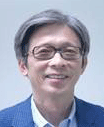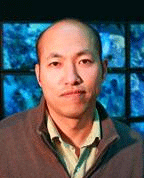
* Final program is available now. (Click here)
* Program at a glance
| TIME | Track 1 | Track2 |
|---|---|---|
| January 11, 2015 (Sunday) | ||
| 16:00-18:00 | Organizing Meeting | |
| January 12, 2015 (Monday) | ||
| 08:30-09:00 | Registration Open | |
| 09:00-10:45 | Tutorial (Naga & Rainbow) | |
| 10:45-11:00 | Coffee Break | |
| 11:00-12:00 | Opening Ceremony/Keynote Speech (Naga & Rainbow) | |
| 12:00-13:00 | Lunch Break (Citadel Restaurant) | |
| 13:00-15:00 | Oral 1 : Ad hoc/sensor networks I (Naga) | Oral 2 : Security and privacy I (Rainbow) |
| 15:00-16:00 | Poster 1 Multimedia service (Hallway) / Coffee Break |
Poster 2 : WLAN, LTE, cognitive radio technology (Hallway) / Coffee Break |
| 16:00-18:00 | Oral 3 : Ad hoc/sensor networks II (Naga) | Oral 4 : Security and privacy II (Rainbow) |
| 18:30-21:00 | Reception (Poolside) | |
| January 13, 2015 (Tuesday) | ||
| 08:30-09:00 | Registration Open | |
| 09:00-10:00 | Poster 3 : Information-centric Networking and Software Defined Networking (Hallway) / Coffee Break | Poster 4 : Internet of Things and Internet Applications(Hallway) / Coffee Break |
| 10:00-12:00 | Oral 5 : Network modeling, monitoring and manage-ment (Naga) | Oral 6 : Cellular networks (Rainbow) |
| 12:00-13:00 | Lunch Break (Citadel Restaurant) | |
| 13:00-15:00 | Oral 7 : Power, Localization, and Pricing in wireless networks (Naga) | Oral 8 : Internet and web applications (Rainbow) |
| 15:00-16:00 | Poster 5 : Network measurement, performance and security (Hallway) / Coffee Break | Poster 6 : Wireless, Multi-hop, Delay-tolerant Networks (Hallway) / Coffee Break |
| 16:00-18:00 | Oral 9 : Communication technology (Naga) | Oral 10 : Implementation, measurement and perfor-mance analysis (Rainbow) |
| 18:30-21:30 | Banquet (Phokeethra Ballroom) | |
| January 14, 2015 (Wednesday) | ||
| 08:30-09:00 | Registration Open | |
| 9:00-11:00 | Oral 11 : Software defined network(Naga) | Oral 12 : Routing, QoS and resource management (Rainbow) |
Keynote Speech
Presenter: Prof. Jaiyong Lee (Yonsei Univ., Korea)
Short Bio
 Prof. Jaiyong Lee has been a professor at electrical and computer engineering department since 1987, 7 years at POSTECH and 20 years at Yonsei University, Seoul, Korea. As a director of the Advanced RFID/USN Technology center from 2004 to 2012, which was sponsored by the government, he led the technology development in related areas by producing many patents, journal papers and promoted academy-industry collaboration by transferring technologies. As a member of advisor of KIOT(Korea IoT Association) since 2005 and as the president of KICS(Korea Institute of Communication and Information Sciences) in 2012, he led government policies and activated the industries in ICT and especially in IoT areas, and led many international workshops such as WF(world Forum)-IoT 2014 as a co-chair. As a president of Giga Korea Foundation since 2013, he is leading the technology development for next generation ICT technology including 5G and IoT for future services in Korea.
Prof. Jaiyong Lee has been a professor at electrical and computer engineering department since 1987, 7 years at POSTECH and 20 years at Yonsei University, Seoul, Korea. As a director of the Advanced RFID/USN Technology center from 2004 to 2012, which was sponsored by the government, he led the technology development in related areas by producing many patents, journal papers and promoted academy-industry collaboration by transferring technologies. As a member of advisor of KIOT(Korea IoT Association) since 2005 and as the president of KICS(Korea Institute of Communication and Information Sciences) in 2012, he led government policies and activated the industries in ICT and especially in IoT areas, and led many international workshops such as WF(world Forum)-IoT 2014 as a co-chair. As a president of Giga Korea Foundation since 2013, he is leading the technology development for next generation ICT technology including 5G and IoT for future services in Korea.He was the dean of college of engineering and the president of industry- academy collaboration foundation of Yonsei University. He holds the Ph.D in computer engineering from Iowa State University , USA.
Title
Enabling Technologies and Strategies for the Successful IoT Services?
Abstract
IoT services and technologies are expected to be the next growth engine in many global companies not only the contents providers but also the manufacturing companies.
In this presentation, we ask 3 big questions related for the successful IoT services: In what applications can we find the value of IoT services? How the IoT value is created and what are the enabling technologies? And finally, what are the strategies for the successful IoT service?
TUTORIAL
Presenter: Prof. JongWon Kim (GIST, Korea)
Short Bio
 Prof. JongWon Kim received the B.S., M.S. and Ph.D. degrees from Seoul National University (Seoul, Korea), in 1987, 1989 and 1994, respectively, all in Control and Instrumentation Engineering. In 1994-2001, he was a faculty member of KongJu National University (KongJu, Korea) and University of Southern California (Los Angeles, USA). From Sept. 2001, he has joined Gwangju Institute of Science & Technology (Gwangju, Korea), where he is now a full Professor. Since April 2008, he is serving as the director of GIST SCENT (Super Computing CENTer). Also, he is leading Networked Computing Systems Lab. (recently renamed from Networked Media Lab.) that focuses on “Dynamic & resource-aware composition of media-centric services employing programmable/virtualized resources”. His recent research interests cover topics such as software defined networking (SDN) / cloud computing (CC) for Future Internet testbed and smart media-centric services employing heterogeneous SmartX nodes. Around these topics, he has co-authored more than 300 technical publications in international/domestic journals and conferences. Finally, he has/had been involved with several working group activities related to global R&E networks and Future Internet, including the HDTV WG chair of APAN (Asia-Pacific Advance Network), the WS chair of APAN-NRW (Network Research Workshop), the testbed WG Chair of FIF (Future Internet Forum in Korea), and the steering group member of AsiaFI.
Prof. JongWon Kim received the B.S., M.S. and Ph.D. degrees from Seoul National University (Seoul, Korea), in 1987, 1989 and 1994, respectively, all in Control and Instrumentation Engineering. In 1994-2001, he was a faculty member of KongJu National University (KongJu, Korea) and University of Southern California (Los Angeles, USA). From Sept. 2001, he has joined Gwangju Institute of Science & Technology (Gwangju, Korea), where he is now a full Professor. Since April 2008, he is serving as the director of GIST SCENT (Super Computing CENTer). Also, he is leading Networked Computing Systems Lab. (recently renamed from Networked Media Lab.) that focuses on “Dynamic & resource-aware composition of media-centric services employing programmable/virtualized resources”. His recent research interests cover topics such as software defined networking (SDN) / cloud computing (CC) for Future Internet testbed and smart media-centric services employing heterogeneous SmartX nodes. Around these topics, he has co-authored more than 300 technical publications in international/domestic journals and conferences. Finally, he has/had been involved with several working group activities related to global R&E networks and Future Internet, including the HDTV WG chair of APAN (Asia-Pacific Advance Network), the WS chair of APAN-NRW (Network Research Workshop), the testbed WG Chair of FIF (Future Internet Forum in Korea), and the steering group member of AsiaFI.Title
Fast and Economic Realization of Diversified Services over Convergent Software-Defined Infrastructure
Abstract
In this tutorial talk, first, we will review the exploding paradigm shift toward software-defined ICT (Information and Communications Technology) infrastructure that leverages the harmonized orchestration of SDN (Software-Defined Networking), NFV (Network Functions Virtualization), and CC (Cloud Computing) technologies. The resulting futuristic SDI (Software-Defined Infrastructure) tied with the real-time analytics capability of BigData platforms can complete the emerging foundation of the Industrial Internet of Things (I2oT) frameworks with versatile smart/mobile things. Thus, the agile and economic realizations of diversified human-defined services are enabled over fully-automated SDI. Next, we will introduce the virtualized playground (i.e., testbed) concept, where the DevOps (Developers and Operators) engineers can experience the imminent innovation by orchestrating the Mobile+Cloud service realization with small-and-large hyper-convergent (i.e., computing/networking/storage combined) OF@TEIN/OF@KOREN SmartX Boxes. By starting from the building-block concepts such as ‘Box’, ‘Functions’, and ‘Inter-Connect’, we will show the automated abstractions for ‘Provisioning’, ‘Orchestration’, and ‘Governance’ can complete the experiment lifecycle of creating, testing, and launching human-defined services.
















